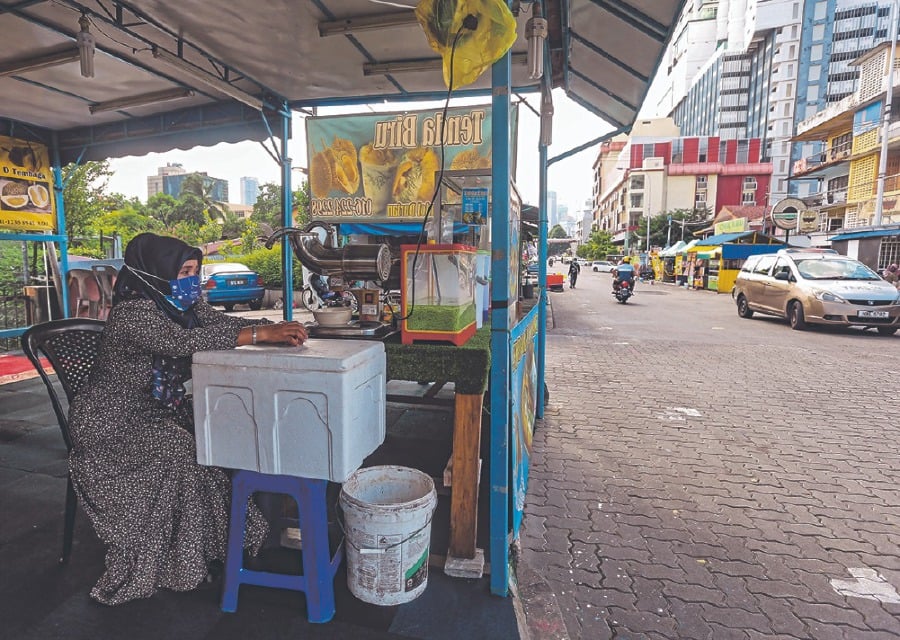i-Citra, loan moratorium relief for Malaysians

By Ayisy Yusof and Mohamed Basyir - June 30, 2021 @ 9:01am
KUALA LUMPUR: The government's latest initiatives, such as the Employees' Provident Fund i-Citra withdrawal scheme and the six-month bank loan moratorium, are apt measures as many individuals and households have been adversely affected by Covid-19, economists said.
MIDF Research economist Abdul Mui'zz Morhalim said the measures would support consumption, or at least cushion the impact of the lockdown.
"The i-Citra withdrawal will provide extra cash, especially for those impacted by the lockdown. They can tap their EPF savings to support consumption spending and other needs," he said.
MORE NEWS
MTUC lauds Pemulih for focusing on rakyat
PTPTN loan repayment moratorium only for affected parties
Pemulih: 5,300 tour operators to receive RM3,000 in Phase 3 of NRP [NSTTV]
PM announces education loan moratorium under Pemulih [NSTTV]

“The i-Citra withdrawal will provide extra cash especially for those impacted by the lockdown. They can tap their EPF savings to support consumption spending and other needs.” - Abdul Mui’zz Morhalim, MIDF Research economist
Mui'zz said the loan moratorium was one of the highly-anticipated initiatives, as it would provide temporary relief to those struggling to cope.
"More importantly, the moratorium will benefit people who lost their income and small business owners who face challenges due to the temporary shutdowns and tight cash flows," he added.

The moratorium will help small business owners facing difficulties.
Prime Minister Tan Sri Muhyiddin Yassin on Monday said i-Citra would channel about RM30 billion to the people to meet their daily needs.
The scheme is part of the government's latest RM150 billion stimulus measures called Pakej Perlindungan Rakyat dan Pemulihan Ekonomi, or Pemulih.

Muhyiddin said the i-Citra scheme would allow 12.6 million EPF members to withdraw up to RM5,000, at RM1,000 per month for five months, subject to the member's total savings.
He also announced a six-month bank loan moratorium for individual borrowers and micro-entrepreneurs to help them weather the economic effects of the Covid-19 pandemic.

“These reliefs will, however, not be sufficient if the lockdown is prolonged. People should prepare for the long term, especially those who do not have adequate retirement savings.” - Dr Yeah Kim Leng, Sunway University economics professor
Sunway University economics professor Dr Yeah Kim Leng said the moratorium and i-Citra would alleviate financial burdens in the short term, but EPF would need to ensure that Malaysians replenish their retirement savings.

“The loan moratorium is good news for my family and me. For the next few months, I do not have to worry about how I am going to pay my housing and car loans besides other bills. It is especially helpful for those who have lost their jobs.” - T. Logeiswary, 32, Corporate communications senior executive, Prai, Penang

“A few things to be grateful for about this initiative. The electricity bill discount will help my family as we continue to work at home. I am glad to hear that we are allowed to withdraw under EPF’s i-Citra should the need arise.” - T. Navin Francis, 28, Communications head, Seremban, Negri Sembilan
"These reliefs will, however, not be sufficient if the lockdown is prolonged. People should prepare for the long term, especially those who do not have adequate retirement savings," Yeah said.
Meanwhile, economists urged the government to consider reopening economic sectors by speedily transitioning to the second phase of the National Recovery Plan (NRP).

“For me, the best initiative is the electricity bill discount, since I have begun working from home and my siblings having to attend online classes. We can save up to RM200 from our bill and use it for other expenses.” - Amirul Akmal Nor Yusre, 29, Social media manager, Kapar, Selangor

“We have been told to come in for work on a rotation basis, so we cannot make extra income through overtime. I may withdraw money through i-Citra to cover my expenses.” - Mohamed Salahudin Hyder Ali, 31, Factory production operator, George Town, Penang
Yeah said moving towards a targeted lockdown would allow more businesses to resume operations with strict standard operating procedures.
